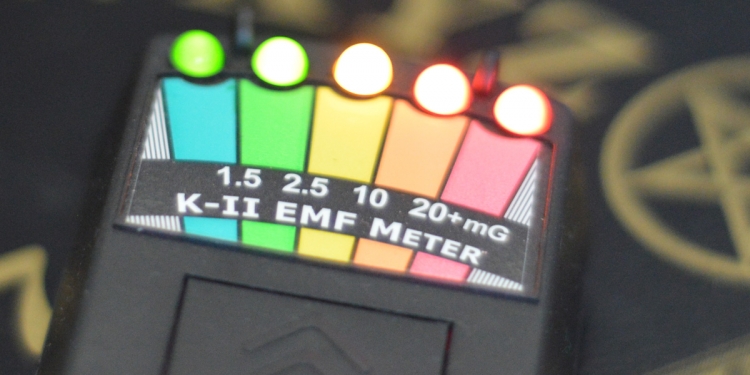It’s Time To Stop Seeking Scientific Proof In Ghost Hunting

Many paranormal investigators pride themselves on their scientific approach to ghost hunting, as they aim to provide tangible proof of the existence of ghosts. But is this the only way to explore the paranormal? Or is there room for a more personal exploration of ghostly phenomena?
After more than a century of paranormal investigation with little progress in providing definitive answers, perhaps it’s time to consider alternative approaches that prioritise personal meaning over scientific proof. This is not to dismiss the value of scientific inquiry, but to encourage individuals to explore their own encounters with the paranormal without the pressure to validate their experiences to skeptics.
A longstanding approach has been the use of scientific devices to prove the existence of ghosts. This method, while rooted in a quest for empirical evidence, raises fundamental questions about the nature of belief and the existence of the unseen. If society can embrace belief in a deity without tangible proof, why does the search for ghosts demand scientific validation?
Belief in a higher power, such as God, is widely accepted without the need for physical evidence. This faith is based on personal conviction, spiritual experiences, and scripture rather than empirical proof. Similarly, belief in ghosts stems from personal experiences, anecdotal evidence, and a sense of connection with the unseen. Yet, unlike religious faith, belief in ghosts often faces skepticism unless supported by scientific evidence. Even skeptics generally understand that scientific evidence of God is out of the question.
The pursuit of scientific proof in ghost hunting may actually undermine the personal experiences that lie at the heart of paranormal encounters and the ghost stories we love. By focusing on devices and measurements, we risk neglecting the emotional and spiritual impact these experiences can have on those who witness them. This approach would align with the way religious beliefs are formed and expressed, based on personal conviction and subjective experience rather than empirical evidence.
If belief in the divine requires no scientific validation, why should encounters with the paranormal be any different? Shifting the focus from proving the existence of ghosts to exploring and embracing personal experiences could open up new dimensions in paranormal investigation.
A subjective approach to ghost hunting, on the other hand, would be more exploratory and location-centric. Like traditional ghost hunting, it would involve visiting sites that are reputed to be haunted, with the aim of experiencing paranormal phenomena that are not necessarily tied to personal relationships with the spirits encountered.
This shift doesn’t mean abandoning all attempts at validation. Instead, it might lead ghost hunters to explore haunted locations with a focus on its historic ghost stories and the emotions it invokes rather than just its electromagnetic anomalies, which can only be a good thing. Instead of seeking to convince the unbelievers, this approach emphasises the importance of personal belief and the value of individual experiences.
Some ghost hunting methods, such as the use of EMF meters and EVP (Electronic Voice Phenomenon) recorders, are often seen as pseudoscific, this new direction could open up ghost hunting to academics. Focussing more on personal ghost stories and experiences might encourage researchers to analyse this experience in greater detail in search of patterns or commonalities, offering insights into the paranormal that are grounded in personal belief yet enriched by collective analysis.
Of course, this idea is not without its challenges. The scientific method provides a framework for investigation that is widely respected and understood. Moving away from this framework could diminish the credibility of ghost hunting in the eyes of some. However, by framing ghost hunting as a more personal journey, it might be possible to engage with the paranormal in a way that is both deeply meaningful and respectful of individual experiences.



